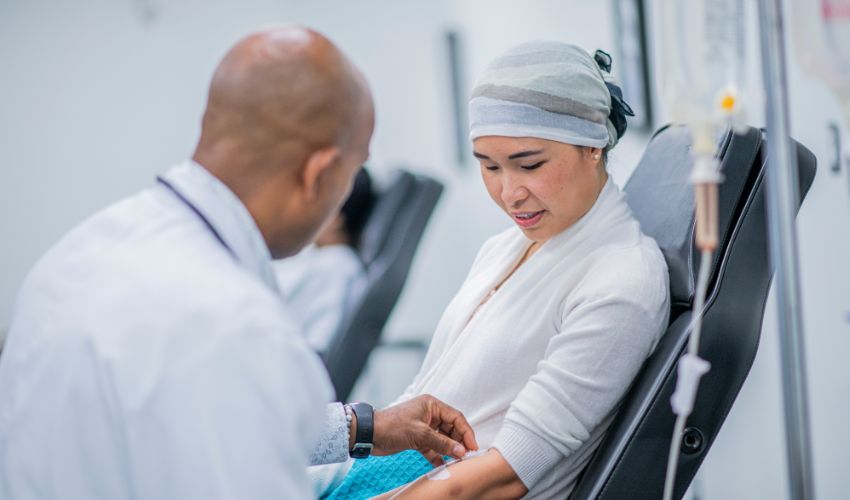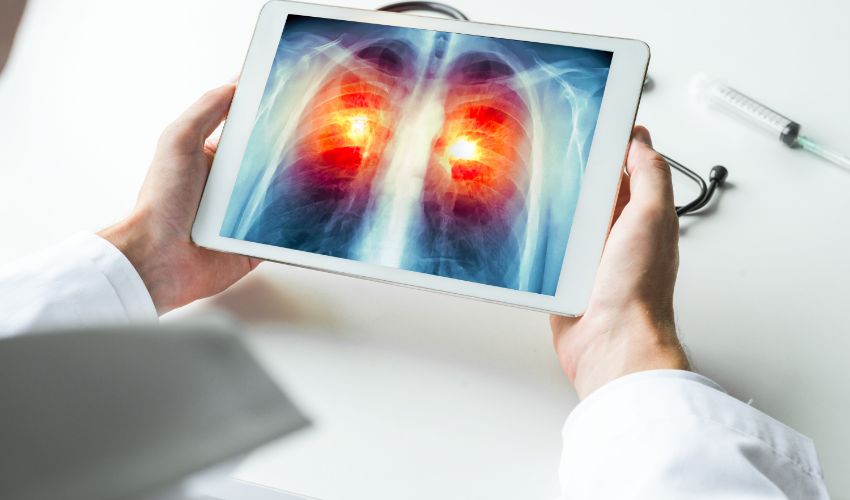Lung cancer is one of the most common types of cancer worldwide. It occurs when cells in the lungs begin to grow abnormally and form a tumor. These tumors can be malignant (cancerous) or benign (non-cancerous). Lung cancer is a serious disease that can be fatal if left untreated. It is important to understand the causes, symptoms, and treatment options available for this disease.
Causes of Lung Cancer:
There are several factors that can increase a person’s risk of developing lung cancer. These include:
- Smoking: Smoking is the leading cause of lung cancer. It is estimated that smokers are 15-30 times more likely to develop lung cancer than non-smokers.
- Secondhand Smoke: Exposure to secondhand smoke can also increase a person’s risk of developing lung cancer.
- Radon: Radon is a naturally occurring gas that can be found in soil, water, and some building materials. Exposure to high levels of radon can increase a person’s risk of developing lung cancer.
- Air Pollution: Exposure to air pollution, especially in urban areas, can increase a person’s risk of developing lung cancer.
Symptoms of Lung Cancer:
The symptoms of lung cancer can vary depending on the stage of the disease. Some common symptoms include:
- Persistent coughing that does not go away
- Shortness of breath
- Chest pain
- Wheezing
- Hoarseness
- Unexplained weight loss
- Fatigue
Treatment of Lung Cancer:
The treatment options for lung cancer depend on the stage of the disease and the overall health of the patient. Some common treatments include:
- Surgery: Surgery may be recommended to remove the tumor and any surrounding tissue that may be affected.
- Radiation Therapy: Radiation therapy uses high-energy radiation to kill cancer cells.
- Chemotherapy: Chemotherapy uses drugs to kill cancer cells.
- Targeted Therapy: Targeted therapy uses drugs that target specific proteins or genes in cancer cells.
- Immunotherapy: Immunotherapy uses the body’s own immune system to fight cancer.

FAQs:
Can lung cancer be prevented?
While it is not always possible to prevent lung cancer, there are steps that can be taken to reduce the risk of developing the disease. These include quitting smoking, avoiding exposure to secondhand smoke, and reducing exposure to radon and air pollution.
What is the prognosis for lung cancer?
The prognosis for lung cancer depends on the stage of the disease and the overall health of the patient. Early detection and treatment can improve the prognosis for patients with lung cancer.
Is lung cancer hereditary?
While there is no definitive answer, studies have suggested that genetics may play a role in the development of lung cancer.
Can lung cancer be treated with alternative therapies?
While some alternative therapies may provide relief from symptoms, there is no scientific evidence to support the use of alternative therapies for the treatment of lung cancer.
What can I do to support someone with lung cancer?
There are many ways to support someone with lung cancer, including offering emotional support, helping with household tasks, and accompanying them to doctor’s appointments.

Conclusion:
Lung cancer is a serious disease that can be fatal if left untreated. It is important to understand the causes, symptoms, and treatment options available for this disease. By quitting smoking, avoiding exposure to secondhand smoke, and reducing exposure to radon and air pollution, individuals can reduce their risk of developing lung cancer. Early detection and treatment are key to improving the prognosis for patients with lung cancer. If you or someone you know is experiencing symptoms of lung cancer, it is important to see a doctor as soon as possible. With the right treatment and support, individuals with lung cancer can improve their quality of life and continue to thrive.
It is important to note that lung cancer can be a challenging disease to manage, both physically and emotionally. Patients may experience a range of symptoms and side effects from treatment, including pain, fatigue, and emotional distress. However, with the help of a supportive healthcare team and loved ones, patients can manage their symptoms and maintain their quality of life throughout their treatment journey.
In conclusion, lung cancer is a complex disease that requires a multifaceted approach to treatment and management. By understanding the causes, symptoms, and treatment options available, individuals can take proactive steps to reduce their risk of developing lung cancer and improve their prognosis if diagnosed. With ongoing research and advancements in cancer care, there is hope for a future where lung cancer is no longer a deadly disease.






















